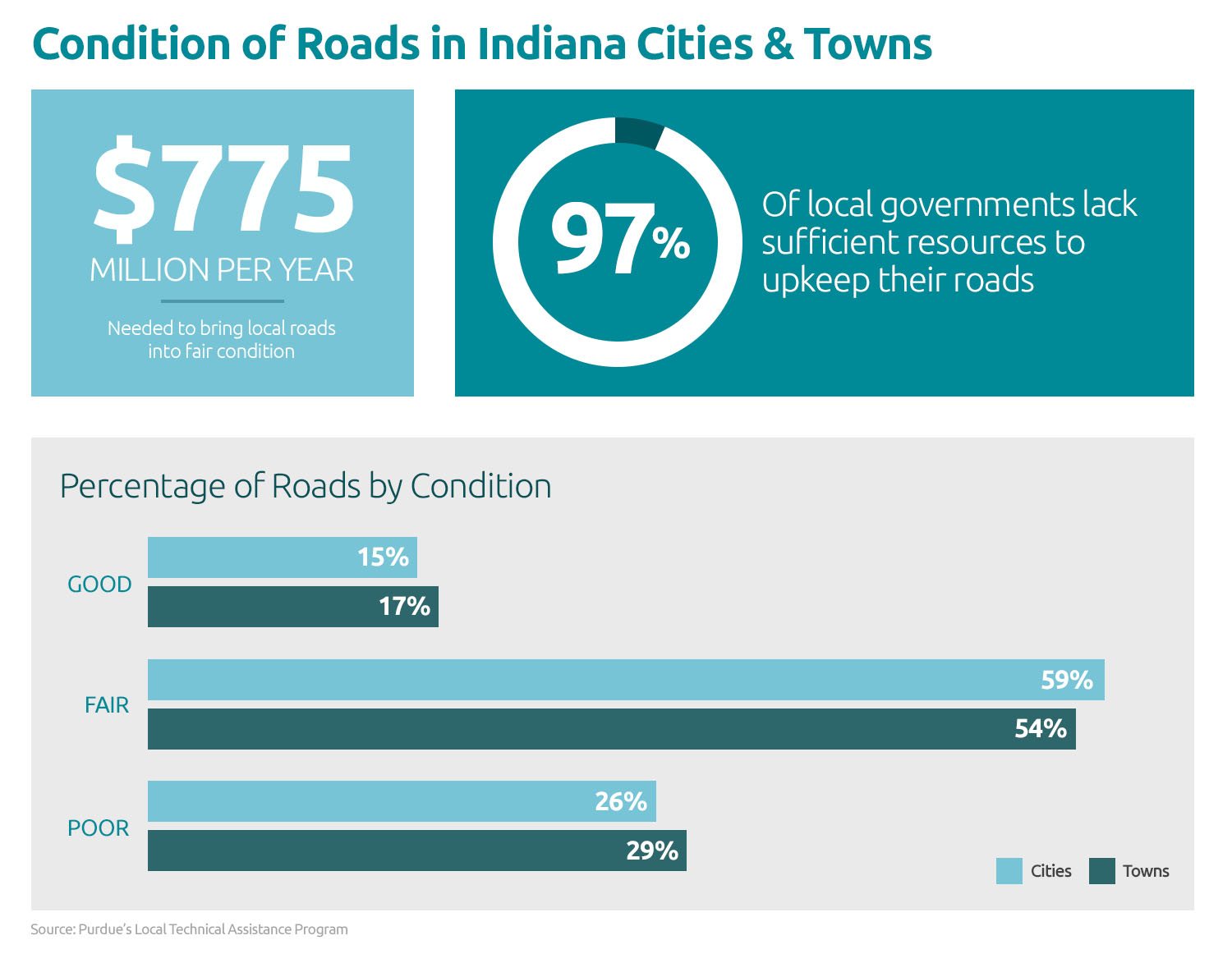Chelsea Schneider, Municipal Innovations Specialist
As lawmakers negotiate a final roads funding plan, one thing is certain: Indiana’s cities and towns face a critical, $775 million-a-year need to bring local roads into fair condition.
Municipal leaders are urging lawmakers to pass a long-term funding solution, one that supports Indiana’s local roads for years to come. The leaders do so armed with new data confirming road conditions they’ve seen worsen by the day. Indiana’s infrastructure, despite its vital role in the state’s economy, is decaying – rapidly in many places – as cash-strapped cities and towns struggle to pay for necessary repairs.
Calls for more road funding come as:
- Only 15 percent of city streets are considered in good condition, according to Purdue’s Local Technical Assistance Program, with more than a quarter of the streets rated as poor. The percentage of poor-rated roads only rises in towns, with nearly 30 percent receiving bad marks. The data is based off asset management plans compiled by local governments in 2016.
- Some 97 percent of local governments lack sufficient resources to upkeep their roads. Amid those shortfalls, local governments face a major responsibility, maintaining 84,000 miles of roadway in Indiana.
In its plan, the Senate reduced municipal support from the original version, proposing significantly less funding that runs the risk of slowing progress. Conversely, the House plan would allow for more progress addressing critical municipal maintenance backlogs. To realize that advancement, LTAP found cities and towns would need an additional $775 million a year for the next 10 years.
Fiscal estimates show the House’s version of House Bill 1002 gets much closer to that goal than the Senate. Over four years, the House plan would provide double the funding of the Senate version.
The effect of insufficient resources is felt in cities and towns, large and small.
In La Porte, Mayor Blair Milo told a legislative panel she anticipates a $15 million price tag “to get our entire network up to an acceptable condition.”
And in Zionsville, Mayor Tim Haak says the town needs more than $30 million in road improvements, which can only be achieved “by a long term, sustainable solution.”
“We encourage our lawmakers to be proactive and help locals with our infrastructure needs,” Haak said.
The need is great, making this year’s legislative session the time to act. Instead of another stopgap, lawmakers should embrace a long-term, comprehensive plan to support local infrastructure. An incremental step now will only push harder, inevitable decisions down the road.

